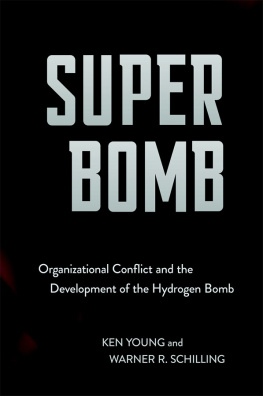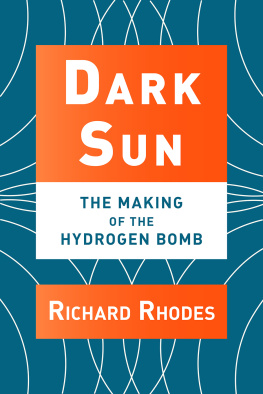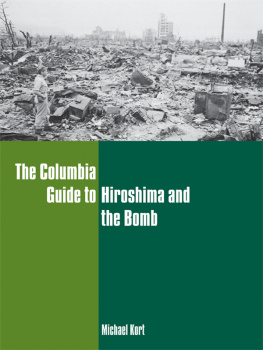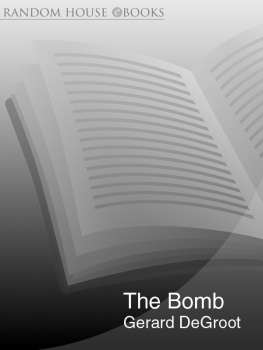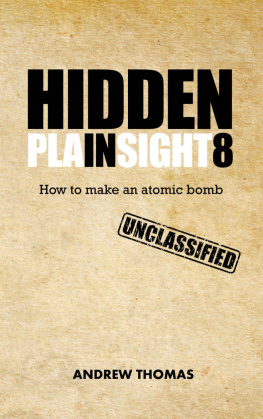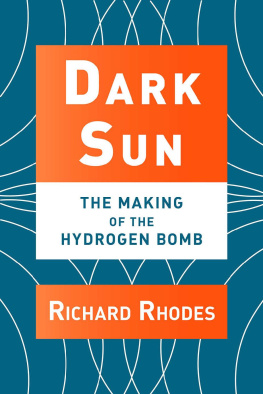Preface
This book has had an unusually long gestation period. The idea originated at the Institute of War and Peace Studies (IWPS) at Columbia University in the immediate postwar period and was finally realized at the Department of War Studies, Kings College, London, some sixty-two years later.
Columbias Institute of War and Peace Studies was a pioneering institute established on the initiative of Dwight D. Eisenhower, Columbias then president, general of the army, and the future US president. Eisenhower confessed to finding it almost incomprehensible that no American university has undertaken the continuous study of the causes, conduct and consequences of war. The founding of the institute (now the Arnold A. Saltzman Institute of War and Peace Studies) in 1951 led the international movement toward the academic study of international security, paralleled some years later in the UK by the foundation under Michael (later Sir Michael) Howard of the Department of War Studies at Kings College, London, where this project was revived, with its coverage extended beyond President Harry S. Trumans original January 1950 decision to proceed with development of the hydrogen bomb, and was carried to completion.
Columbias institute was initially headed, and directed for some twenty-five years, by William T. R. Fox, a highly respected scholar of international relations. He was included in the august company of scholars and practitioners brought together by the Rockefeller Foundation in 1954among them Hans J. Morgenthau, Reinhold D. Niebuhr, Paul Nitze, and Arnold Wolfersin a historic event to establish the foundations of realism as an The follow-up series of discussions that arose from that conference was to take place at the IWPS.
Among Foxs particular interests was the relationship between the military and civilian powers, including the little-researched relationship between scientists and the military. With that in mind he initiated a set of case studies, funded in part by the Carnegie Corporation, the intellectual impetus for which was set out in a memorandum from Fox to the Columbia nuclear physicist Isidor Isaac Rabi:
My effort is, first, to discover and describe the ways of thinking and acting on national security problems of various kinds of civilians and soldiers when they deal with questions of joint concern .
A second part of the research is to make fairly intensive studies of actual policy decisions . One of the cases on which we are working is especially designed to clarify the distinctive ways in which scientists talk and actthat is, distinctive in relation to politicians, civil servants, diplomats, professional soldiers, industrial mobilizers, etc. The publication of the transcript of the Oppenheimer hearing of April and May, 1954, seemed to give us the opportunity to make a careful study of the decision to put the research on thermonuclear weapons on a crash basis.
Into that project came Warner R. Schilling, a thirty-one-year-old research associate at the institute. Schilling first came to the IWPS in 1954, shortly after receiving his doctorate in political science from Yale and after briefly serving at the Princeton Center of International Studies. He was appointed assistant professor in Columbias Department of Public Law and Government, and became an associate professor in 1962 and full professor in 1967. In 1976, Fox retired from the directorship of the IWPS. Schilling, who had succeeded him as the James T. Shotwell Professor of International Relations, then stepped up to the directorship, which he held for the following ten years.
In 1956 that rise to eminence lay in the future. Schilling plunged into the task of exploring the hydrogen bomb decision process through a program of interviews. The list of the interviews he conducted, included in the introduction and bibliography, illustrates the wide reach of the program that he undertook during 195658. Using, among other sources, the transcript of the Oppenheimer Personnel Security Board hearing to identify key players, Schilling produced an extensive target list, from President Truman on down. Moreover, he was remarkably successful in obtaining access, a tribute to his discretion and to the standing of the institute.
Yet no research project follows a predetermined path to conclusion. The research process itself is inescapably an iterative one, in the course of which the gathering of insights reshapes the original plan. Interview time was committed to exploring the relationship between scientists and soldiers, and, as That subject nevertheless took second place to the need to unravel the politics of the Super, as the hydrogen bomb project was known.
Part of the charm of reading Schillings interview notes lies in the personal reactions he recorded, often surprising himself. Some of his interviewsJohn Manley, William Borden, Joe Volpe, Paul Nitze, Alvin Luedecke, Sidney Souersstand out for the stream of insight they provided. People to whom contemporary historical writing has been unkind, such as Borden of the Joint Congressional Committee staff and the physicist Edward Teller, Schilling found congenial and helpful. The following characterizations are typical of Schillings reflective style:
- My reaction to [Luis] Alvarez was much the same as to Borden and to Pitzer. Point being that contrary to my expectation, these were men who give every impression of emotional maturity and intellectual clarity . Alvarez is a thoroughly likeable guy who demonstrates none of the semi-buffoon like attributes that I had inferred from his testimony.
- Rather impressed with [Hans] Bethe, especially when he grasped right away some points I stated in far from lucid prose. Also impressed me as a very sincere man in his approach to and recollection of these events.
- Whether it was just general courtesy and respect for the profession, [Edward] Teller was most generous with his time and seemed quite eager to help. Personally, he like all these participants is both impressive and pleasant. He has [a] tendency to get quiteperhaps this is too strong a termexcited and will walk back and forth while talking, sit and then rise again. Tends to talk rather loud . I would say that I find it plausible that there would be those who would find him difficult to get along with in a joint effort and that there would be those who would find it a joy.
- I was with [Dean] Acheson from 11:45 to 12:30 PM. I was also charmed off the seat of my pants. This time [unlike his first interview with the former secretary of state] I didnt suffer from stage fright. After the interview was over he said he would walk out with me, and we walked across town to his club where he was meeting someone for lunch. Needless to say, I found this a pleasant experience.
- [Sidney] Souers was an ideal interviewee; willing to talk at length and with seeming candor. His perspective on Govt service and the people involved appears to be without rancor or ill feeling. Even re people for whom he clearly has little use, e.g. [Louis] Johnson, his words are not barbed.
- As for general impressions [of J. Robert Oppenheimer], these were anti-climatic, as, perhaps, they were bound to be. I didnt really get much support for any of the common images: JRO the master persuader; the liar; the brilliant analyzer; or what have you. Mostly, he just seemed to be another GAC member, another physicist. He was at times witty and attractive in his discussion; at other times hostile and short tempered.

